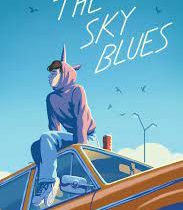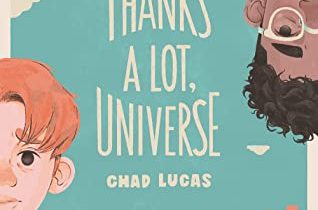Rosen, L.C. Camp. Little, Brown and Company. 2020. $17.99. 384p. HC/PB. 9780316537759.

Camp Outland is a summer camp for LGBTQIA+ teens, a safe space away from the (straight) world where†campers can feel free to be themselves. Theater boy Randy has been coming to this camp for years now, but for this year has undergone a complete makeover–losing weight, refusing to participate in this yearís play, and donning an uber-masc persona named Del. All of this work is to capture the heart of a cute boy over whom heís been yearning the past three summers: the athletic Hudson Aaronson-Lin. Randyís appearance has changed so much, in fact, that Hudson doesnít recognize him from previous summers. As a boy entranced by the allure of musical theater, Randy doesnít see his performance as an act of deception, but as a role in a rom-com of which he is the star. Itís only when Hudson sees through Delís act that we realize Hudson isnít who Del thought he was, and that Hudson too has been putting on an act–his whole life.
There is a lot to like about Camp: his friends George and Ashleigh are fully-realized supporting characters, and among the other campers we find representation of trans, ace, arom, and gender nonconforming individuals. The campís counselors–Connie, Marguerite, and Mark–are a colorful addition to the novelís cast of characters, and help us find a deeper appreciation of the strength it takes to come out and be true to yourself. Camp director Joan prepares weekly lectures for the campers about lesser known aspects of queer history, which effectively serve to teach the reader about such things as the Mattachine Society and pre-Stonewall gay liberation movements. Perhaps most of all, Camp is remarkable for its critique of toxic masculinity and its exploration of themes related to parental emotional abuse, internalized homophobia, and living in fear.
Camp is a thoroughly entertaining and thought-provoking Shakespearean rom-com, and is a welcome addition to the growing canon of LGBTQ YA novels. On occasion the charactersí frank conversations about sex (and a surprisingly graphic sex scene) made me think Rosen had momentarily forgotten his primary audience, but that ultimately didnít get in the way of my enjoyment of this novel. As noted in a previous review, novels like this simply didnít exist when I was growing up, and this might help explain why a middle-aged man such as myself so often finds himself reading them. If you enjoyed Simon vs. the Homo Sapiens Agenda, Openly Straight, We Contain Multitudes, among many other similarly-themed novels, you wonít be disappointed by Camp.
Andrew T. Powers
(he/him/his)
University of Michigan
MSI í22



